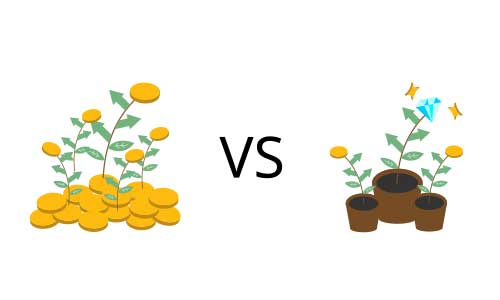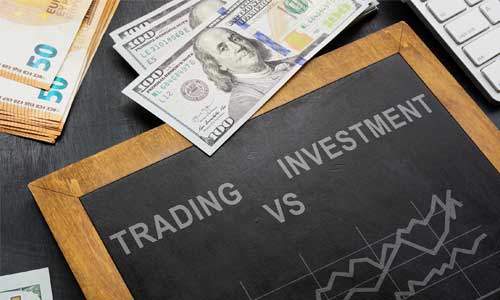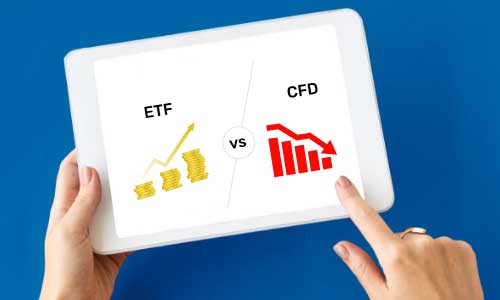Stock Market Volatility Explained
As an investor, it’s necessary to understand stock market volatility. It determines the stock price fluctuation over time and shows the level of market uncertainty. When you are aware of this concept, you can make informed investment decisions, effectively manage risks, and capitalise on ...read more
What is Stock Market Volatility?
Volatility in stocks is a measure of how much the price of an asset fluctuates over time. High stock market volatility implies major and often unpredictable price changes. Lower volatility, meanwhile, indicates that prices are stable and changing gradually. In simple words, volatility shows the level of uncertainty.
Best Investment Plans in UAE
Some of the best Investment quotes in UAE & Dubai are:
Why Does Stock Market Volatility Matter for Investors?
Here are the benefits of understanding stock market volatility —
- Better understanding to evaluate the investment’s risk level
- Helps with price options and derivatives more precisely
- Assists you in building balanced, diversified portfolios
- Gauges overall market sentiment
- Helps in adjusting strategies to meet the prevailing conditions
Types of Stock Market Volatility Measurements
There are several ways to measure market volatility. Each measurement type offers a different lens on market movement –
- Historical Volatility - A backwards-looking measure, it tracks how much an asset’s price fluctuates over a specific period. In plain words, it helps you understand how rough the recent market fluctuation has been.
- Implied Volatility - This one is a forward-looking measure. It reflects the market expectations for future price fluctuations. A rise in implied volatility indicates that investors are buckling up for potential turbulence.
- The VIX Index - The VIX, also called ‘fear gauge’, measures the expected 30-day volatility of the S&P 500. A high VIX shows concern or uncertainty, while VIX relates to stability.
8 Most Volatile SectorsHere are some of the most volatile sectors — Energy sector |
|---|
How is Stock Market Volatility Calculated?
Stock market volatility is computed using variance and standard deviation. Since volatility implies changes with time, it takes the standard deviation and multiplies it by the square root of the number of periods.
Here is the math behind market volatility calculation –
vol = σ x √T,
Where,
- vol - Volatility over a certain interval of time
- σ - Standard deviation of total returns
- T - Total number of periods in the particular time horizon
Factors Deriving Stock Market Volatility
Several elements influence stock market volatility. Let’s get an understanding of the major factors —
- Economic Indicators - Inflation rates, GDP growth, and interest rates affect market sentiment
- Geopolitical Events - Policy changes, wars, or elections usually increase market uncertainty
- Supply and Demand - A sudden rise in buying or selling pressure directly influences stock prices
- Company Performance - Corporate actions, including mergers or earnings reports, can lead to volatility
Historical Stock Market Volatility EventsThe COVID-19 Pandemic - In 2020, the global shutdown due to COVID-19 led to widespread uncertainty. It caused substantial volatility in international and regional markets, including those in the UAE. The indices experienced sharp and rapid downturns. The Dow Jones, for instance, dropped almost 16% in one day. The 2008 Global Financial Crisis - Caused by the subprime mortgage crisis, this global financial crisis led to major losses and sharp market declines across the world. There was a 50% plunge in some major stock market indices. Geopolitical Conflicts (Ukraine-Russia) - This event impacted commodity prices, especially crude oil and gold. It primarily affected the transportation and energy sector, triggering overall general market uncertainty. External Shocks and Regional Events - The 1997 Asian Financial Crisis and 9/11 attacks are some external shocks that constantly affected the Gulf markets, showcasing link between global stability and investor sentiment. |
|---|
How to Benefit from Stock Market Volatility?
Volatile stocks can lure you into reacting emotionally. You can sell out some promising stocks or buy value-destroying shares, causing more financial setbacks than profits. Rather, here are some practical ways to surf through the stock market volatility waves.
#1 Keep Your Long-Term Plan in Mind - Markets recover with time. It is smarter to stay invested and avoid making panic exits. This way, you can balance out temporary volatility,
#2 Think of Volatility as an Opportunity - Tenures where the prices fall offer solid entry points. Several strong companies trade at lower valuations, offering long-term investors the opportunity buy purchase stocks at a discounted price.
#3 Maintain a Healthy Financial Cushion - Keep an emergency fund that covers at least 3 to 6 months of your expenses. This way, you would not have to sell your investments to meet the urgent needs.
#4 Rebalance Your Portfolio Regularly - Review your asset allocation and make adjustments as per your financial goals. Your investments will align with your goals and risk appetite, even when the market is fluctuating.
Frequently Asked Questions
What is a good volatility in the stock market?
The best volatility in the stock market depends on the traders. Long-term investors, for instance, prefer low volatility as it offers stability in the long run. Short-term traders, meanwhile, prefer medium to high volatility for quick returns.
Is 70% implied volatility high?
Yes, implied volatility above 50 is considered elevated or high.
Can you profit from stock market volatility?
When volatility increases, you get a chance to generate an above-average profit. However, it also carries the risk of losing a significant amount of capital in a short timeframe.
More From Investment
- Recent Articles
- Popular Articles

























